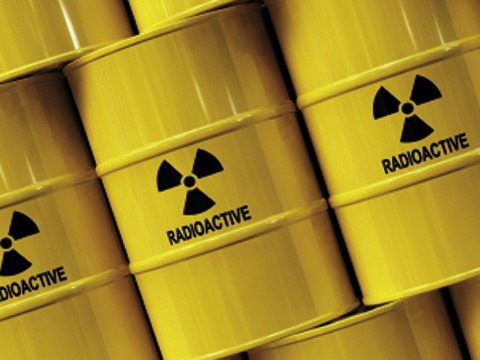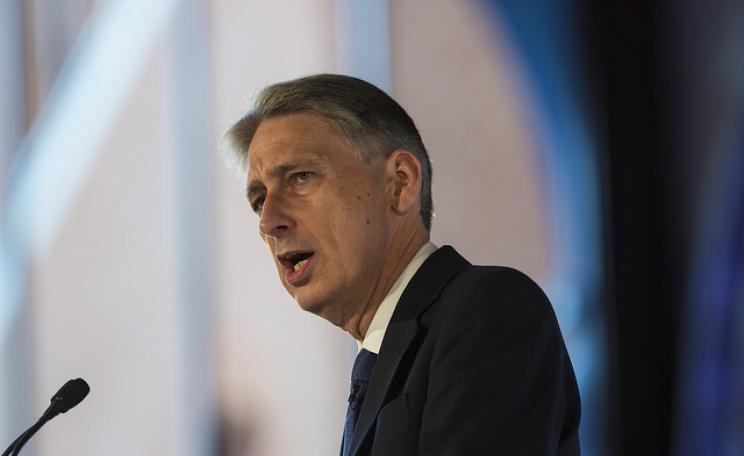As events unfold at the Fukushima nuclear power station in Japan, surely a serious question mark must arise in everyone’s mind about the wisdom of the ongoing ‘nuclear renaissance’.
Sadly that is very far from the truth, and some people appear to consider that Fukushima vindicates nuclear plants because it took a massive earthquake to throw it into catastrophic breakdown. But defenders of nuclear power always seem to think that the latest disaster is the exception that proves the rule – that each disaster proves how safe nuclear power actually is.
So, apologists claim, every disaster from Windscale, through Three Mile Island to Chernobyl and Fukushima has its own specific cause which is unique. But that is precisely the issue. Every nuclear accident is going to result from specific set of circumstances and the reality is that no one knows how or when that next accident will take place. But they will take place and for that reason as well as many others - like permanently radioactive waste with no long-term safe storage method yet devised, childhood leukaemia clusters near nuclear power stations and the health consequences of uranium mining, to name a few – a line has got to be drawn under the dream-turned-nightmare of nuclear power.
The good news is that some countries are already pulling back from the brink. Swiss Energy Minister Doris Leuthard has suspended the approvals process for three new nuclear power stations in Switzerland. News reports suggest that the German government is likely to suspend its decision to extend the life of its nuclear power stations while tens of thousands have protested in Germany against the life extensions.
But why is it that Britain is lagging behind these countries in its actions?
UK looks to learn lessons
Yesterday Energy Secretary Chris Huhne called on the Chief Nuclear Inspector, Dr Mike Weightman, to make a thorough report on the implications of the situation in Japan and the lessons to be learned. That’s all very well as far as it goes, but this action clearly falls well short of what the situation requires. As an absolute minimum the government should follow the Swiss lead and suspend any further progress on plans to replace Britain’s aging nuclear power stations.
Ongoing reports from Fukushima indicate a worsening scenario with partial or full meltdown likely - if not already taking place. Reports that the Tokyo Electric Power Company, which runs the plant, is playing down any health risk, are shocking. Such a course of action is potentially disastrous folly. People need to be fully aware of what is taking place there, and what the likely health and environmental scenarios may be.
Any attempt to downplay the consequences of such a disaster for political or financial motives would be absolutely scandalous and immoral - and that applies to Britain as well as to Japan. We have seen the systematic whitewashing of the health and environmental impact of Chernobyl, and now, twenty-five years later, the chickens are coming home to roost because the lessons were not learned. The blame was placed on Soviet technology, where it should have been placed fair and square on the very nature of nuclear power – its killing capacity is second to none.
It would be utterly reprehensible if our government, and our media, or any other agency, sought to downplay the enormous human disaster playing out at Fukushima because of the current government desire to promote and build new nuclear power stations in Britain. There have been systematic attempts over the years to minimise the threats posed by nuclear power in order to justify construction of nuclear power plants. It is essential, in the public interest, that full media coverage is given to the case against nuclear power and that scientists who oppose nuclear power should have the opportunity to spell out the facts as they understand them.
Not to do so, and not to suspend and reconsider the building of new nuclear power stations, would be criminal irresponsibility, playing with the lives of hundreds of thousands of people and gambling with the very fabric of our environment and its structures.
We cannot have business as usual and Chris Huhne's call for a report falls short of what is required in the interests of public health and safety. Above all, Britain must develop a non-nuclear energy policy, building on and developing Britain's undoubted capacity for the development and production of sustainable energy forms. That is the alternative. And it is safe, sustainable and viable. That way, lies the future for humanity.
Dr Kate Hudson, Chair of the Campaign for Nuclear Disarmament (CND)
| READ MORE... | |
 |
NEWS ANALYSIS Underwater nuclear power stations destined for the English Channel? Plans for undersea nuclear power reactors around the coast of France could see a boom in uptake of the technology - but serious questions about costs and waste disposal remain unanswered |
 |
NEWS Rejected nuclear waste site in Cumbria back on list of potential locations Campaigners and scientists express concern over the inclusion of a site near Sellafield in latest list of locations considered for deep underground disposal of nuclear waste |
 |
COMMENT The government isn’t telling us the true cost of nuclear waste disposal UK plans for ten new nuclear power plants will create £80 billion worth of radioactive waste that we still have no secure way of disposing |
 |
INTERVIEW Alternative Nobel Prize winner Raul Montenegro: ‘Nuclear energy is a nonsense technology’ Argentinean academic and activist Raul Montenegro on why indigenous people hold the keys to survival, why GM technologies only profit big business and how nuclear power ignores the rights of future generations |
 |
NEWS Nuclear power debate still divides UK public opinion The majority of the public feels the risks of nuclear power outweigh the benefits and would prefer to see more investment into renewable energy, a new poll shows |






